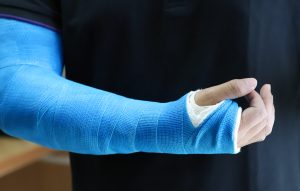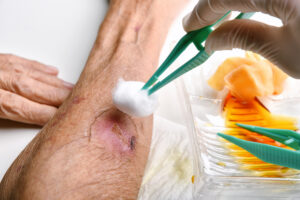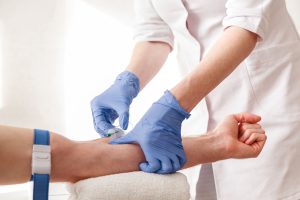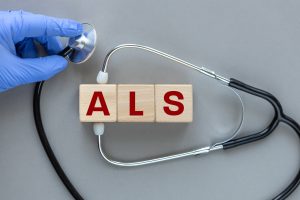
The Ultrasound Vascular Access Workshop is a comprehensive, hands-on training program designed for healthcare professionals seeking to enhance their skills and confidence in ultrasound-guided venous cannulation.
This workshop focuses on the accurate identification and access of peripheral veins using ultrasound guidance, helping to improve patient comfort, safety, and procedural success rates. Participants will gain a strong understanding of ultrasound fundamentals and develop practical techniques that can be applied immediately in clinical practice.
Course content includes a review of relevant anatomy and physiology, principles of ultrasound imaging, vein selection and assessment, and appropriate device selection. Learning is reinforced through guided practical sessions, allowing participants to practise techniques in a supportive, supervised environment.
This workshop is ideal for clinicians who regularly perform venous access and are looking to improve accuracy, efficiency, and patient outcomes through the use of ultrasound technology.

UCRH Multidisciplinary Education Program on Wednesday 18 February 2026
Session 1: IPL led workshop with Sally Howard, Speech Pathologist, UCRH Clinical Educator and Speech Pathology students
When: 9:30AM – 11AM
https://uni-sydney.zoom.us/meeting/register/Bdtv74qnQDiHRfWc9PWFnA
Session 2: Voluntary Assisted Dying – Jessika Davis Clinical Nurse Consultant
11:30AM – 12:30PM
https://uni-sydney.zoom.us/meeting/register/9kW1PSX_SZGhGYmScakglA
Session 3: “Working with autistic individuals: Incorporating inclusive Practices in Healthcare“ – Sarah Crook, Occupational Therapist, UCRH Clinical Educator
1:30PM – 3:30PM
https://uni-sydney.zoom.us/meeting/register/QdX8ZQ0QQXa3BzVQPY-38w

Student Led Case Discussion 20 February 2026
Light lunch and networking from 12:15pm
Case Discussion: When Birth Wishes Meet Best Practice: Navigating Maternal Autonomy and Safety
12:30pm – 1:30pm
https://uni-sydney.zoom.us/meeting/register/8NqkdS8rQuin80NhHWHS7g

The Plaster & Wound Closure Workshop is a hands-on training program designed for healthcare professionals who want to build practical skills in wound suturing and plaster cast application for fractures.
Participants will learn essential techniques for safe and effective wound closure, practising suturing on simulated skin models. The workshop also covers plastering and immobilisation procedures for broken bones, using anatomical moulds to provide realistic, hands-on experience.
Guided by experienced instructors, participants receive real-time feedback and support to develop confidence, accuracy, and competence. This workshop is ideal for clinicians who manage acute injuries and want to enhance their ability to deliver high-quality care in clinical settings.

This practical workshop helps clinicians build strong and confident skills in wound assessment and management. You will learn how to assess skin integrity, understand each stage of the wound healing process, and recognise the intrinsic and extrinsic factors that affect healing. We also cover clear and accurate documentation, and how to classify pressure injuries and IAD in a clinical setting. The session also introduces compression therapy, dressing selection, and the basics of NPWT.
You will take part in a range of hands-on activities throughout the workshop. These include identifying different wound types, choosing and applying the right dressings, practising safe debridement, and applying effective compression. Each activity supports real-world clinical practice and helps you feel more confident with everyday wound care.
We run this workshop in collaboration with Far North Coast Wound Services.

The Ultrasound Vascular Access Workshop is a comprehensive, hands-on training program designed for healthcare professionals seeking to enhance their skills and confidence in ultrasound-guided venous cannulation.
This workshop focuses on the accurate identification and access of peripheral veins using ultrasound guidance, helping to improve patient comfort, safety, and procedural success rates. Participants will gain a strong understanding of ultrasound fundamentals and develop practical techniques that can be applied immediately in clinical practice.
Course content includes a review of relevant anatomy and physiology, principles of ultrasound imaging, vein selection and assessment, and appropriate device selection. Learning is reinforced through guided practical sessions, allowing participants to practise techniques in a supportive, supervised environment.
This workshop is ideal for clinicians who regularly perform venous access and are looking to improve accuracy, efficiency, and patient outcomes through the use of ultrasound technology.

Boost your clinical skills and confidence with this practical, hands-on cannulation and venepuncture training. This course combines essential theoretical knowledge with guided practice, helping you develop the techniques and safety skills needed to perform these procedures effectively.
During the session, you will:
Learn key techniques for safe and accurate cannulation and venepuncture
Understand important clinical considerations and safety principles
Participate in guided hands-on practice to build real confidence and competence
By the end of the course, you will be able to perform both procedures safely and confidently, applying your skills in a variety of clinical settings. This training is designed to enhance your professional development, support high-quality patient care, and improve clinical outcomes.

Boost your clinical skills and confidence with this practical, hands-on cannulation and venepuncture training. This course combines essential theoretical knowledge with guided practice, helping you develop the techniques and safety skills needed to perform these procedures effectively.
During the session, you will:
Learn key techniques for safe and accurate cannulation and venepuncture
Understand important clinical considerations and safety principles
Participate in guided hands-on practice to build real confidence and competence
By the end of the course, you will be able to perform both procedures safely and confidently, applying your skills in a variety of clinical settings. This training is designed to enhance your professional development, support high-quality patient care, and improve clinical outcomes.

Advanced Life Support (ALS) Courses – ACCCN Accredited
The Australian College of Critical Care Nurses (ACCCN), a member organisation of the Australian Resuscitation Council (ARC), accredits our Advanced Life Support (ALS) programs. These courses offer high-quality education in Adult, Paediatric and Instructor-level resuscitation.
The ACCCN National Advanced Life Support Education program provides practical, evidence-based training for healthcare professionals, including nursing, medical and defence force staff. It suits clinicians who work in critical care environments or who regularly care for critically ill patients.
Because the program builds on existing ALS knowledge, participants should already be familiar with core ALS practices. During the course, you will develop the skills and confidence to lead an ALS team effectively. Before enrolling, please review the ACCCN ALS Team Leader Assessment Criteria to understand the expectations and assessment requirements (download here).
Moreover, all content aligns with current recommendations from ANZCOR, the Australian Resuscitation Council (ARC) and the International Liaison Committee on Resuscitation (ILCOR), ensuring each course reflects the latest evidence and best practice.
Continuing Professional Development (CPD)
Nurses: Every ACCCN ALS course counts toward CPD hours.
Medical Officers: Courses carry CPD endorsement from:
Australian College of Rural & Remote Medicine (ACRRM)
Australian College of Emergency Medicine (ACEM)
Australian and New Zealand College of Anaesthetists (ANZCA)
College of Intensive Care Medicine (CICM)
The Royal Australian College of General Practitioners (RACGP)
The Royal Australasian College of Physicians (RACP)
ACCCN encourages clinicians to complete annual re-certification for both Adult and Paediatric ALS programs. In addition, all participants receive access to an interactive program manual and a range of online learning resources to support their preparation and ongoing development.

This practical workshop helps clinicians build strong and confident skills in wound assessment and management. You will learn how to assess skin integrity, understand each stage of the wound healing process, and recognise the intrinsic and extrinsic factors that affect healing. We also cover clear and accurate documentation, and how to classify pressure injuries and IAD in a clinical setting. The session also introduces compression therapy, dressing selection, and the basics of NPWT.
You will take part in a range of hands-on activities throughout the workshop. These include identifying different wound types, choosing and applying the right dressings, practising safe debridement, and applying effective compression. Each activity supports real-world clinical practice and helps you feel more confident with everyday wound care.
We run this workshop in collaboration with Far North Coast Wound Services.

Advanced Life Support (ALS) Courses – ACCCN Accredited
The Australian College of Critical Care Nurses (ACCCN), a member organisation of the Australian Resuscitation Council (ARC), accredits our Advanced Life Support (ALS) programs. These courses offer high-quality education in Adult, Paediatric and Instructor-level resuscitation.
The ACCCN National Advanced Life Support Education program provides practical, evidence-based training for healthcare professionals, including nursing, medical and defence force staff. It suits clinicians who work in critical care environments or who regularly care for critically ill patients.
Because the program builds on existing ALS knowledge, participants should already be familiar with core ALS practices. During the course, you will develop the skills and confidence to lead an ALS team effectively. Before enrolling, please review the ACCCN ALS Team Leader Assessment Criteria to understand the expectations and assessment requirements (download here).
Moreover, all content aligns with current recommendations from ANZCOR, the Australian Resuscitation Council (ARC) and the International Liaison Committee on Resuscitation (ILCOR), ensuring each course reflects the latest evidence and best practice.
Continuing Professional Development (CPD)
Nurses: Every ACCCN ALS course counts toward CPD hours.
Medical Officers: Courses carry CPD endorsement from:
Australian College of Rural & Remote Medicine (ACRRM)
Australian College of Emergency Medicine (ACEM)
Australian and New Zealand College of Anaesthetists (ANZCA)
College of Intensive Care Medicine (CICM)
The Royal Australian College of General Practitioners (RACGP)
The Royal Australasian College of Physicians (RACP)
ACCCN encourages clinicians to complete annual re-certification for both Adult and Paediatric ALS programs. In addition, all participants receive access to an interactive program manual and a range of online learning resources to support their preparation and ongoing development.

Boost your clinical skills and confidence with this practical, hands-on cannulation and venepuncture training. This course combines essential theoretical knowledge with guided practice, helping you develop the techniques and safety skills needed to perform these procedures effectively.
During the session, you will:
Learn key techniques for safe and accurate cannulation and venepuncture
Understand important clinical considerations and safety principles
Participate in guided hands-on practice to build real confidence and competence
By the end of the course, you will be able to perform both procedures safely and confidently, applying your skills in a variety of clinical settings. This training is designed to enhance your professional development, support high-quality patient care, and improve clinical outcomes.

Advanced Life Support (ALS) Courses – ACCCN Accredited
The Australian College of Critical Care Nurses (ACCCN), a member organisation of the Australian Resuscitation Council (ARC), accredits our Advanced Life Support (ALS) programs. These courses offer high-quality education in Adult, Paediatric and Instructor-level resuscitation.
The ACCCN National Advanced Life Support Education program provides practical, evidence-based training for healthcare professionals, including nursing, medical and defence force staff. It suits clinicians who work in critical care environments or who regularly care for critically ill patients.
Because the program builds on existing ALS knowledge, participants should already be familiar with core ALS practices. During the course, you will develop the skills and confidence to lead an ALS team effectively. Before enrolling, please review the ACCCN ALS Team Leader Assessment Criteria to understand the expectations and assessment requirements (download here).
Moreover, all content aligns with current recommendations from ANZCOR, the Australian Resuscitation Council (ARC) and the International Liaison Committee on Resuscitation (ILCOR), ensuring each course reflects the latest evidence and best practice.
Continuing Professional Development (CPD)
Nurses: Every ACCCN ALS course counts toward CPD hours.
Medical Officers: Courses carry CPD endorsement from:
Australian College of Rural & Remote Medicine (ACRRM)
Australian College of Emergency Medicine (ACEM)
Australian and New Zealand College of Anaesthetists (ANZCA)
College of Intensive Care Medicine (CICM)
The Royal Australian College of General Practitioners (RACGP)
The Royal Australasian College of Physicians (RACP)
ACCCN encourages clinicians to complete annual re-certification for both Adult and Paediatric ALS programs. In addition, all participants receive access to an interactive program manual and a range of online learning resources to support their preparation and ongoing development.

